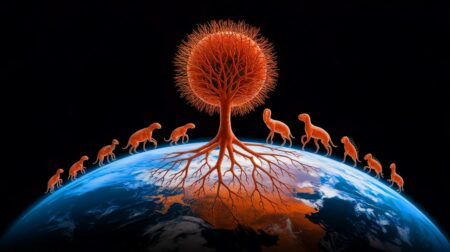Photo: Pexels/Keenan Constance
Human activities disrupt the earth’s climate. Climate change has several impacts, such as changes in sea level, rising temperatures and severe weather. Typically, scientists study the environmental and scientific effects of this change.
However, we can’t forget about the emotional side effects. Climate change has an effect on the well-being and mental health of people in impacted communities. Understanding the emotional impact of climate change and developing a supportive environment is important to solving the issue.
Anxiety and fear
Climate change takes a significant emotional toll, causing anxiety. People may feel vulnerable and uncertain because of unpredictable or more severe weather patterns. The scarcity of supplies is another factor. Who wouldn’t feel uneasy knowing they may not be able to get the groceries they need?
Climate change also increases the frequency of natural disasters like storms, wildfires and floods. Once set in motion, these disasters are unstoppable. As a result, at-risk communities worry about the future. Their families, homes, careers and life as they know it may be at risk, not to mention the environmental impact. Even the younger generation feels the toll, causing severe anxiety.
Eco-anxiety is a deep emotional pain or worry over ecological problems and uncertainties brought by climate change. This anxiety occurs in response to the planet’s situation and how it may impact present and future generations.
Many people experience this feeling — in 2020, two-thirds of the U.S. population reported feeling some level of eco-anxiety. That may be due to a feeling of accountability for the health of the planet. When the planet suffers, they feel helpless, lost and down heartened.
People who are anxious about the environment may have a variety of emotional and cognitive reactions. It might manifest as an obsession with environmental issues and seeking solutions. In others, the stress could cause sleeping disorders, impatience and focus problems. These problems may last only a few weeks or stick around long-term. Suffering from long-term eco-anxiety may cause mental health issues, such as depression or anxiety disorders.

Fortunately, coping mechanisms are available. People who may be suffering from eco-anxiety can change their lifestyle to ensure they’re living an eco-friendly life.
They can engage with advocates for the environment or get involved in clean and green programs in their community to make a difference. If physical or psychological symptoms are serious, professional care is available.
Group efforts are the ultimate solution. If eco-anxiety is a problem for one, then the community can step in to make a difference and relieve stress — on individuals and the planet.
Grief and loss
Grief is a natural feeling. While most people grieve after a death, people can also grieve the loss of the environment, animals and ecosystems. Humans have such a strong bond with nature, the absence of wildlife and the natural environment is hard to process. The resulting grief can trigger serious emotional challenges, such as depression or a loss of one’s identity.
Group efforts are the ultimate solution. If eco-anxiety is a problem for one, then the community can step in to make a difference and relieve stress — on individuals and the planet.
Community support fosters a sense of connection and inclusivity. It reduces the emotional weight of suffering on individuals and helps them feel like part of a team making a difference. For example, participating in conversations and workshops are meaningful actions. Even a simple community feast can be an effective way solution, developing feelings of awareness and emotional validation.
Many community-led projects can address the emotional effects of climate change and eco-anxiety.
These cafes offer a chill setting where you may discuss environmental concerns. You may share stories and pick up coping mechanisms from fellow nature enthusiasts. Many cafes are decorated with murals and or host storytelling events, examples of community-based art initiatives. They provide forums for expression and healthy conversations.
Resilience circles
Resilience groups can help you deal with the stress brought on by climate issues. These meetings between community members facilitate emotional support and mutual aid. Disaster-prone areas can create emergency preparedness programs to ensure they’re ready for any climate challenge.
Climate change affects natural resources, wildlife and the beautiful planet — and it affects humans, too. From anxiety and obsession to grief and fear, people experience a wide range of negative and existential emotions as the effects of climate change increase.
It is crucial to acknowledge and deal with these emotions. Instead of ignoring how people feel, validating emotions encourages resilience and promotes proactive coping techniques. Seek the assistance of mental health professionals. Take part in group climate initiatives. Take steps to help create a healthier future for people and the earth.
Did you like it? 4.6/5 (24)








